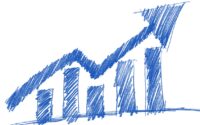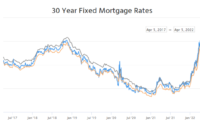Yellen says the administration is fighting inflation, admits she was wrong that it was ‘transitory’
Treasury Secretary Janet Yellen emphasized that the White House has several strategies ready to go that will reduce an inflation burden she conceded is too high on Americans.
In an interview Tuesday with CNBC’s Becky Quick, Yellen listed efforts aimed at prescription drug costs, the budget deficit and oil production that could bring down prices running near the fastest pace since the early days of the Reagan administration.
The remarks came the same day President Joe Biden met with Yellen and Federal Reserve Chairman Jerome Powell, whose institution has begun fighting inflation with interest rate hikes.
“The president emphasized his intention to do everything he can to lower the costs that Americans face for important items in their budget,” Yellen said in describing the meeting. She noted “prescription drugs, for utility bills, things where the president acting on his own or working with Congress can make a difference, and also his support for deficit reduction.”
In both a statement before the meeting and an op-ed piece for The Wall Street Journal, Biden stressed the Fed’s role in bringing down prices.
The Journal piece specifically said, “First, the Federal Reserve has a primary responsibility to control inflation.” Meanwhile, Yellen — who was Powell’s immediate predecessor as head of the central bank — also noted that responsibility.
“The Fed has a dual mandate and it is maximum employment and price stability. I think that’s the way it’s phrased in the law,” she said in the interview that aired Wednesday on “Squawk Box.” “But we are at full employment. We have a very strong labor market. That’s been achieved, but inflation is way too high, and it’s really a big burden on American households. And so maintaining full employment while bringing inflation down, that’s the president’s priority and I believe that’s consistent with how the Fed sees its programs.”
For its part, the Fed has approved two rate hikes this year totaling 75 basis points. Officials have indicated that additional 50 basis point increases are likely over the next several meetings, after which the central bank can evaluate the impact that monetary policy tightening is having.
Both Powell and Yellen spent much of 2021 saying inflation was “transitory” and likely to abate once Covid pandemic-specific factors such as supply chain problems and outsized demand for goods over services returned to normal.
In a separate interview Tuesday, Yellen admitted she was wrong.
“I think I was wrong then about the path that inflation would take,” she told CNN’s Wolf Blitzer. “There have been unanticipated and large shocks that have boosted energy and food prices, and supply bottlenecks that have affected our economy badly that I … at the time, didn’t fully understand.”
In the CNBC interview, Yellen said a spending package “could very well have reductions on the costs of prescription drugs that would make a difference to every family that has drug costs as part of its household budget.”
While she said that “could make a difference very quickly,” most of the administration’s plans likely would take longer to filter through the economy.
Biden has frequently blamed the Russian attack on Ukraine for record-high gasoline prices, but energy costs were already climbing sharply higher before the war. The administration also has said energy companies are sitting on thousands of oil leases that could allow greater production, though those leases likely would take years to develop.
[ad_2]
Source link


